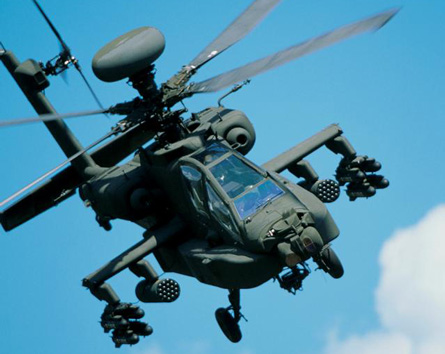
Israel has reportedly agreed to upgrade Greek AH-64 Apache gunships besides ratifying a tripartite deal with Greece and Cyprus on the Eastern Mediterranean gas pipeline project.
The Apache contract valued $34 million covers 19 helicopters. Elbit Systems will provide new Modernized Target Acquisition Designation Sight/Pilot Night Vision Sensor System (M-TADS/PNVS) systems and Integrated Helmet and Display Sighting System (IHADSS) to be equipped on the rotorcraft, DefenceTurk.net reported today, citing AzeriDefence.
The helicopter will also be equipped with Rafael-manufactured Spike NLOS fire-and-forget anti-tank guided missiles. Greece also plans to arm its S-70B-6 Aegean Hawk helicopters with these missiles.
The project aims to build pipelines in the Mediterranean Sea to supply natural gas to southern Europe. Earlier this year, Ankara signed a pact with Libya to create an exclusive economic zone (EEZ) in the Mediterranean Sea.
“We want Turkey as an equal partner and not as the neighborhood bully, but this is currently proving difficult. Turkey has threatened to drill seven miles off the coast of Crete, a Greek island home to over a million people. These waters are within Greece’s EEZ, and drilling there would be a provocative violation of international law,” Greek Ambassador to Israel, Panagiotis Sarris, was quoted as saying by The Jerusalem Post.
Greek-Israel Ties
In what can be seen as a thawing relationship between Israel and Greece, the former entered into a number of agreements with the latter in recent times.
Greek Prime Minister Kyriakos Mitsotakis, during his visit to Israel in mid-June, is said to have held talks with Elbit Systems over establishing a new training center for Hellenic Air Force pilots in Kalamata city. The new facility is expected to cost €1.4 billion over 20 years. Greek ONEX Neorion Shipyards and Israel Shipyards also signed a cooperation agreement for the construction of Themistocles-class corvettes during the PM’s visit.
In May, Greece leased naval variant of Israeli “Heron” surveillance drones to bolster its intelligence gathering abilities for its current ‘cold’ conflict with Turkey, for three years. While media reports said two drones were included in the contract, the Israel defense ministry did not disclose the actual figure.The conflict:
In July 1974, Turkey invaded Cyprus in order to crush a military coup backed by Greece. Ever since then, Ankara continues to lay claim to the breakaway Turkish Republic of Northern Cyprus, a de facto state situated in the north-eastern portion of the island.
According to the UN Law of the Sea Convention, a country’s EEZ can stretch upto 200 miles out to the sea. In cases where maritime distance between two countries is less than 424 miles, the parties involved must determine an agreed dividing line between their EEZs.
Turkey has not signed up to the convention because the document grants significant rights to island territories. Ankara asserts right to the area stating that its continental shelf extends to the median line with Egypt. This in part overlaps with Cyprus’ blocks in the EEZ.
Turkey is the only country to recognise the breakaway Turkish Republic of Northern Cyprus, demands authority over and a share of revenue generating from the gas reserves for the Turkish Cypriots.
On the other hand, Greece supports Republic of Cyprus, and insists on Turkish Cypriots getting their share of the revenue only after the reunification of the island. In addition, Athens blames Ankara for increase in the influx of undocumented migrants into its country, and is considering closing its border with Turkey to stem the migrants.
